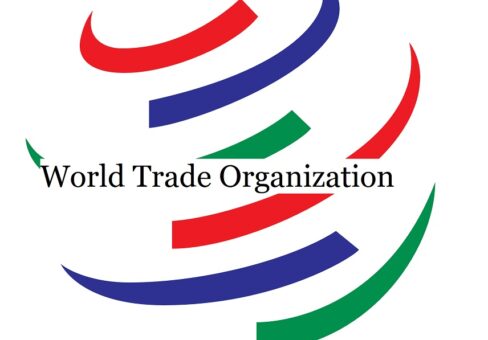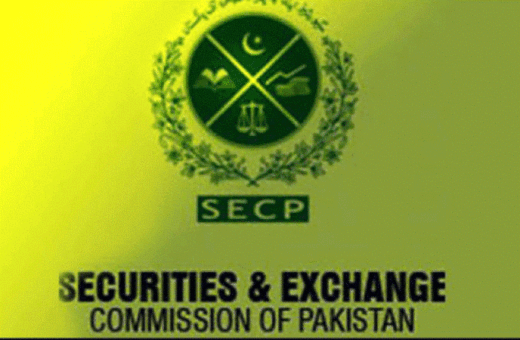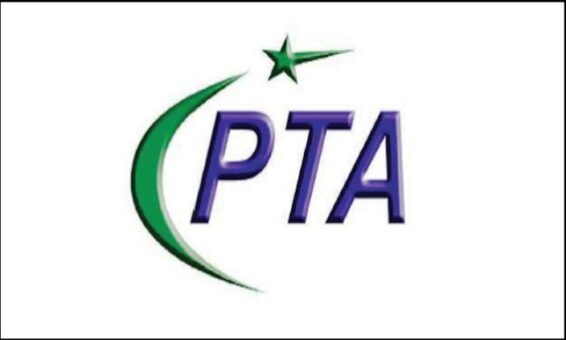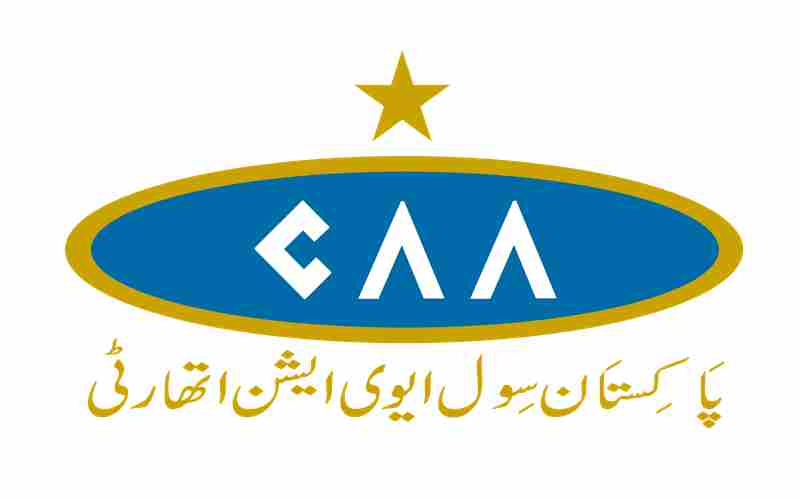The Securities and Exchange Commission of Pakistan (SECP) has announced the closure of Companies Registration Offices (CROs) and facilitation centers until further notice as a preventive measure against the spread of coronavirus disease (COVID-19).
(more…)Tag: coronavirus
-

COVID-19 makes economy highly uncertain: SBP
KARACHI: The State Bank of Pakistan (SBP) on Tuesday said that the global and domestic spread of Covid-19 has brought an exceptional set of challenges for the country.
“The spillovers from the global economy and the infection-containment measures in the country are bound to weaken the economic activity and consumer demand and adversely impact supply,” the SBP said in its Second Quarterly Review on Pakistan Economic.
As the situation is extremely fluid and highly uncertain, the economic outlook remains subdued compared to the pre-outbreak estimates.
The government and the SBP have therefore taken a number of measures to mitigate the adverse impacts of Covid-19 on the economy.
These include sizable fiscal spending programs, tax reliefs, and incentives to the construction industry.
As for the SBP, within a span of 8 days (in March 2020), the Monetary Policy Committee cut the policy rate by 225 basis points.
Furthermore, the SBP has announced multiple measures to provide relief to borrowers for one year on principal loan repayments, offer concessional financing to businesses that do not lay off workers, provide concessional financing to hospitals seeking to enhance their capacity to provide care for Coronavirus infected individuals, facilitate the general public’s access to financial services, simplify payment procedures for exporters and importers, among other measures.
According to the report, the stabilization efforts and regulatory measures yielded notable improvements during the first half of FY20.
The current account deficit contracted to a six-year low, foreign exchange reserves increased, the primary budget recorded a surplus, and core inflation eased. Importantly, export-based manufacturing showed signs of traction and construction activities picked up, indicating that the economy was on the path of recovery.
Progress under the IMF program remained on track and the credit rating agencies maintained their stable outlook for Pakistan during the review period.
Further improvements will require deep structural reforms to put the economy on a firm path towards sustainable growth.
In case of balance of payments, the report noted that the improvement in current account mostly stemmed from a reduction in the import bill with some contribution from export earnings. Depressed international commodity prices had partially offset the gains in export volumes offered by a competitive exchange rate.
With the exception of the telecommunications sector, foreign direct investment (FDI) inflows were also about the same level as last year. The report emphasized that reforms needed to be prioritized to attract and sustain higher FDI inflows into the country.
Regarding the fiscal sector, the report noted that the primary budget recorded a surplus, while the fiscal deficit was contained during H1-FY20 compared to the same period last year.
This was due to a significant growth in revenues despite a slowdown in the economy and the compression in imports. The reversal of earlier tax concessions and implementation of new levies helped increase the revenue collection.
Nonetheless, the overall revenue target was missed, highlighting the scope for greater efforts to broaden the tax base and increase documentation in the economy.
The report further highlighted the challenges pertaining to the agriculture sector. The sector appears less resilient to challenges like constrained water availability and climate change.
The cotton crop, in particular, was hit by unfavorable weather, pest attacks and low water availability. Though the prospects for the wheat crop and livestock are encouraging, the decline in cotton production is likely to undermine the agriculture sector’s performance in FY20.
On the inflation front, the report noted that the inflationary pressures continued to build up throughout the first half of FY20. While the non-food-non-energy (NFNE) inflation exhibited stability amid subdued demand conditions in the economy, food inflation surged steeply in both the quarters.
Given that the surge in inflationary pressures was mostly an outcome of supply disruptions, which are typically seasonal and temporary and core inflation did not rise by a commensurate amount, the SBP’s projections for the average headline inflation for FY20 remained broadly unchanged at 11-12 percent.
This was one of the major reasons the Monetary Policy Committee decided to keep the policy rate unchanged during both its September and November meetings during the first half of FY20.
To ensure that the stabilization measures lead to a sustainable growth path for the country, the report emphasizes that the ongoing efforts must be complemented with further structural reforms.
In this regard, the Special Section of the report identifies the state of competition in the domestic economy as an area needing attention of the policymakers.
It assesses the current state of competition in the country, and highlights the importance of competition in achieving economic growth and price stability.
The section argues that the overall competitive environment in Pakistan has been unfavorable for productivity enhancement and growth. In this context, a rethinking is needed with respect to the regulatory structure of the economy.
The role of the public sector should generally be limited to addressing market failures through structural reforms, and only providing broad institutional support to businesses.
Where targeted interventions are inevitable to support activity in the presence of market failures, it may be ensured that these do not become entrenched.
-

Withholding tax exemption for cellular consumers under consideration
ISLAMABAD: The Committee on Issues of Cellular Mobile Operators has agreed to prepare proposals for withdrawal of withholding tax as a relief for cellular consumers in the wake of coronavirus outbreak.
First meeting of the Committee on Issues of Cellular Mobile Operators was held here on Monday. Federal Secretary Ministry of IT Shoaib Ahmad Siddiqui chaired the meeting.
It was decided that proposals shall be prepared for withdrawal of withholding tax for 90 days as a relief for cellular consumers during this situation in addition to the tax harmonization between Federation and provinces regarding FED/GST.
In line with directions of the Prime Minister, Committee on Issues of Cellular Mobile Operators was formed to evaluate the issues of Cellular Mobile Operators and formulate recommendations for onward submission to the Prime Minister’s Office including settlement of license renewal matters with cellular mobile operators that shall help the government in valuable income generation in the current crisis situation.
Matters related to, additional spectrum allocation in Pakistan and AJK & GB, mutually agreed license renewal frameworks, tax rationalization, Right of Way (RoW) and reduction of NADRA Biometric Verification Charges were discussed during the meeting.
During the meeting, NADRA was requested to reduce charges of biometric verification of SIM especially in view of this situation resulted after COVID-19 in the country.
Representative of NADRA sought sometime to discuss the matter with its Chairman and Board. The Chair directed NADRA to give its version in this regard next week.
Ministry of Industries and Production agreed to the proposal that Telecom sector should be given functional Industry status.
The telecom operators shared serious interest in additional spectrum auction in Pakistan and AJK & GB to facilitate quality mobile broadband services necessary assist people especially students and professional to work from home and comply to COVID_19 related advisory.
The Chair emphasised the need for urgent availability of required spectrum in Pakistan and AJK & GB and that Ministry of Kashmir Affairs & Northern Areas has already been sensitized to take lead on the matter for their respective areas in line with applicable laws.
The Chair directed PTA and telecom industry to work together to firm up proposals regarding data pricing to avoid abuse of service.
The meeting was attended by senior officers of the Ministry of IT, Cabinet Division, Ministry Finance, Ministry of Industries & Production, Federal Board of Revenue, representatives from PTA, NADRA and Cellular Mobile Operators.
-

Tax incentives for all sectors demanded; letter sent to PM
KARACHI: Business community has urged the government to grant tax relief package for all sectors of the economy in order to dilute the adverse effect of coronavirus.
Agha Shahab Ahmed Khan, President, Karachi Chamber of Commerce & Industry (KCCI) while emphasizing the need to consider out of the box solutions, urged the government to formulate an across-the-board incentive package encompassing all the sectors of trade and industry in order to stimulate the economy so as to minimize the impact of global recession and prevent massive unemployment in Pakistan.
In a letter sent to Prime Minister Imran Khan, Agha Shahab gave numerous recommendations for the proposed across-the-board incentive package in which General Sales Tax (GST) rates should be reduced from 17 percent to 9 percent while Withholding Tax (WHT) on all supplies by manufacturers and traders must also be brought down from the current 4.5 percent to 2 percent and the anomaly in WHT rates on import of raw materials by industry and commercial importers has to be removed and a uniform rate of withholding tax should be applicable on both to support the Small & Medium Enterprises (SMEs).
He said that most importantly the discretionary powers under Section 140 of Income Tax Ordinance to access the bank accounts of registered persons be withdrawn, in order to restore confidence of investors and encourage transactions through banking system.
He recommended that the policy rate has to be reduced to 7 percent in line with other countries to stimulate the economy whereas the deferred import bills which are due for payment through banks should be refinanced at 5 percent mark-up.
President KCCI also recommended no questions should be asked for all investments in capital goods, raw materials, premises, acquisition of land and building for industry and trade up to June 30, 2022.
He noted that many other countries have taken initiatives to support their economies and announced incentive packages worth trillions of dollars to bail out the businesses which are going to suffer due to o recession triggered by COVID-19 pandemic.
“Even the Bangladeshi government has announced an across the board relief package of $8.6 billion which includes significant support to SMEs.”
He pointed out that the black economy in Pakistan is twice the size of documented economy and due to the present coercive tax regime and laws, a very large amount of capital is blocked in idle investments.
In view of the prevailing global economic crisis and its negative impact on Pakistan, it is essential to release the blocked capital and encourage investments into productive economic activities such as industry and trade.
Appreciating the Special Incentive Package for Construction Industry, President KCCI, however, said that the benefits of concessions granted to one or two specific sectors will neither reach the majority of trade and industry nor provide relief to common man.
In the present extra-ordinary circumstances, it is necessary to provide across the board incentive package for investment in all sectors of trade and industry, and the SMEs which have a major contribution to GDP and Tax revenues, he added.
It is a critical and challenging time for the country and its economy, therefore the government has to remove the bureaucratic shackles and handicaps created by a very complex tax system, to unleash the entrepreneurial capacity of business community.
-

FBR grants tax exemption on donations to PM Corona Relief Fund
ISLAMABAD: Federal Board of Revenue (FBR) on Friday exempted income tax on donations made to Prime Minister’s Corona Relief Fund.
The FBR issued SRO 300(I)/2020 to make amendment to Second Schedule of Income Tax Ordinance, 2001 to allow exemption from whole of income tax on donations made to PM Corona Fund.
The FBR also granted exemption from minimum tax to the donations made towards the Prime Minister’s COVID-19 Pandemic Relief Fund – 2020.
The FBR also exempted the withholding tax deduction on non-cash banking transactions made by taxpayers not on the Active Taxpayers List (ATL) under Section 236P of the Income Tax Ordinance, 2001.
Further, Section 151, Section 231A and Section 231AA will also not apply to donations made to the Prime Minister Corona Relief Fund.
-

Pakistan bans export of anti-malarial drugs
Pakistan on Thursday banned the export of anti-malarial drugs with immediate effect till further orders.
The ministry of commerce issued SRO 297(I)/2020 to amend Export Policy Order, 2016 to impose the ban. The ban has been imposed due to high demand of the drugs in the wake of coronavirus spread.
The ministry amended the export policy order and brought the drug in First Schedule, which prohibits exports of the goods falling in this schedule.
The ministry said that the ban would be remained applicable till further orders or decision of the National Coordination Committee (NCC) on COVID-19.
-

Engro Fertilizers sets up quarantine facility to prevent coronavirus spread
Engro Fertilizers has set up a 60-bed quarantine facility at its Technical Training College (TTC) in Daharki as part of its ongoing efforts to support the district authorities and local community amid the coronavirus outbreak, a statement from the company said on Thursday.
(more…) -

Global trade may fall up to 32 percent on COVID-19 disruption: WTO
KARACHI: World trade is expected to fall by between 13 percent and 32 percent in 2020 as the COVID 19 pandemic disrupts normal economic activity and life around the world, said a statement issued by World Trade Organization (WTO) on Wednesday.
The wide range of possibilities for the predicted decline is explained by the unprecedented nature of this health crisis and the uncertainty around its precise economic impact.
But WTO economists believe the decline will likely exceed the trade slump brought on by the global financial crisis of 2008‑2009.
Estimates of the expected recovery in 2021 are equally uncertain, with outcomes depending largely on the duration of the outbreak and the effectiveness of the policy responses.
“This crisis is first and foremost a health crisis which has forced governments to take unprecedented measures to protect people’s lives,” WTO Director-General Roberto Azevêdo said.
“The unavoidable declines in trade and output will have painful consequences for households and businesses, on top of the human suffering caused by the disease itself.”
“The immediate goal is to bring the pandemic under control and mitigate the economic damage to people, companies and countries. But policymakers must start planning for the aftermath of the pandemic,” he said.
“These numbers are ugly – there is no getting around that. But a rapid, vigorous rebound is possible. Decisions taken now will determine the future shape of the recovery and global growth prospects. We need to lay the foundations for a strong, sustained and socially inclusive recovery. Trade will be an important ingredient here, along with fiscal and monetary policy. Keeping markets open and predictable, as well as fostering a more generally favourable business environment, will be critical to spur the renewed investment we will need. And if countries work together, we will see a much faster recovery than if each country acts alone.”
Trade was already slowing in 2019 before the virus struck, weighed down by trade tensions and slowing economic growth. World merchandise trade registered a slight decline for the year of ‑0.1 percent in volume terms after rising by 2.9 percent in the previous year. Meanwhile, the dollar value of world merchandise exports in 2019 fell by 3 percent to US$ 18.89 trillion.
In contrast, world commercial services trade increased in 2019, with exports in dollar terms rising by 2 percent to US$ 6.03 trillion. The pace of expansion was slower than in 2018, when services trade increased by 9 percent.


